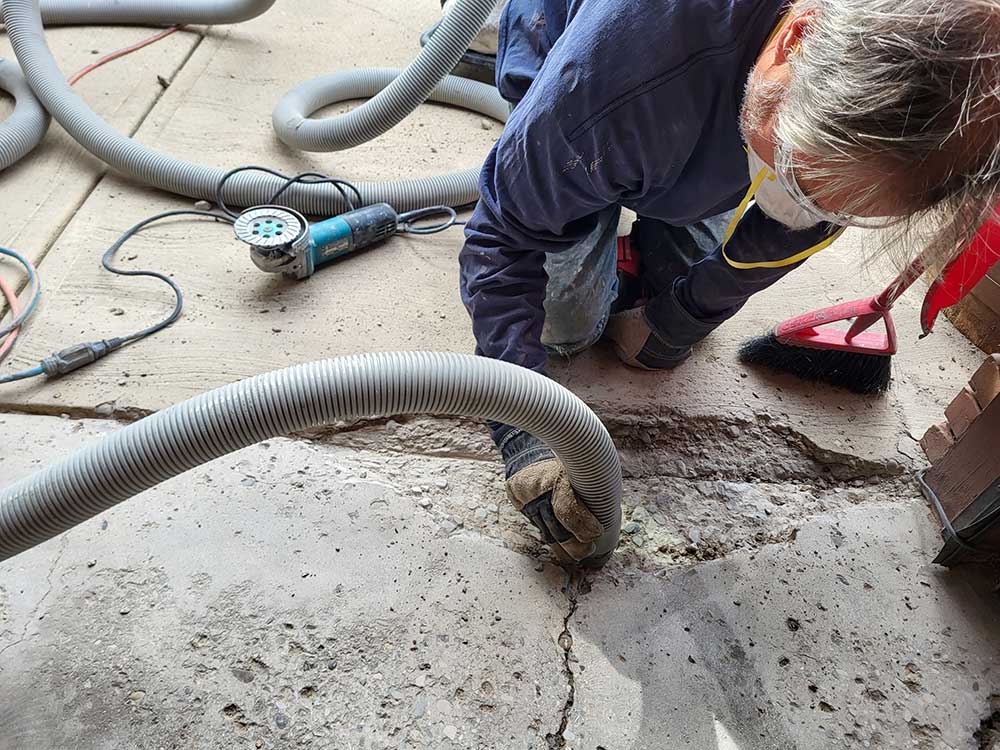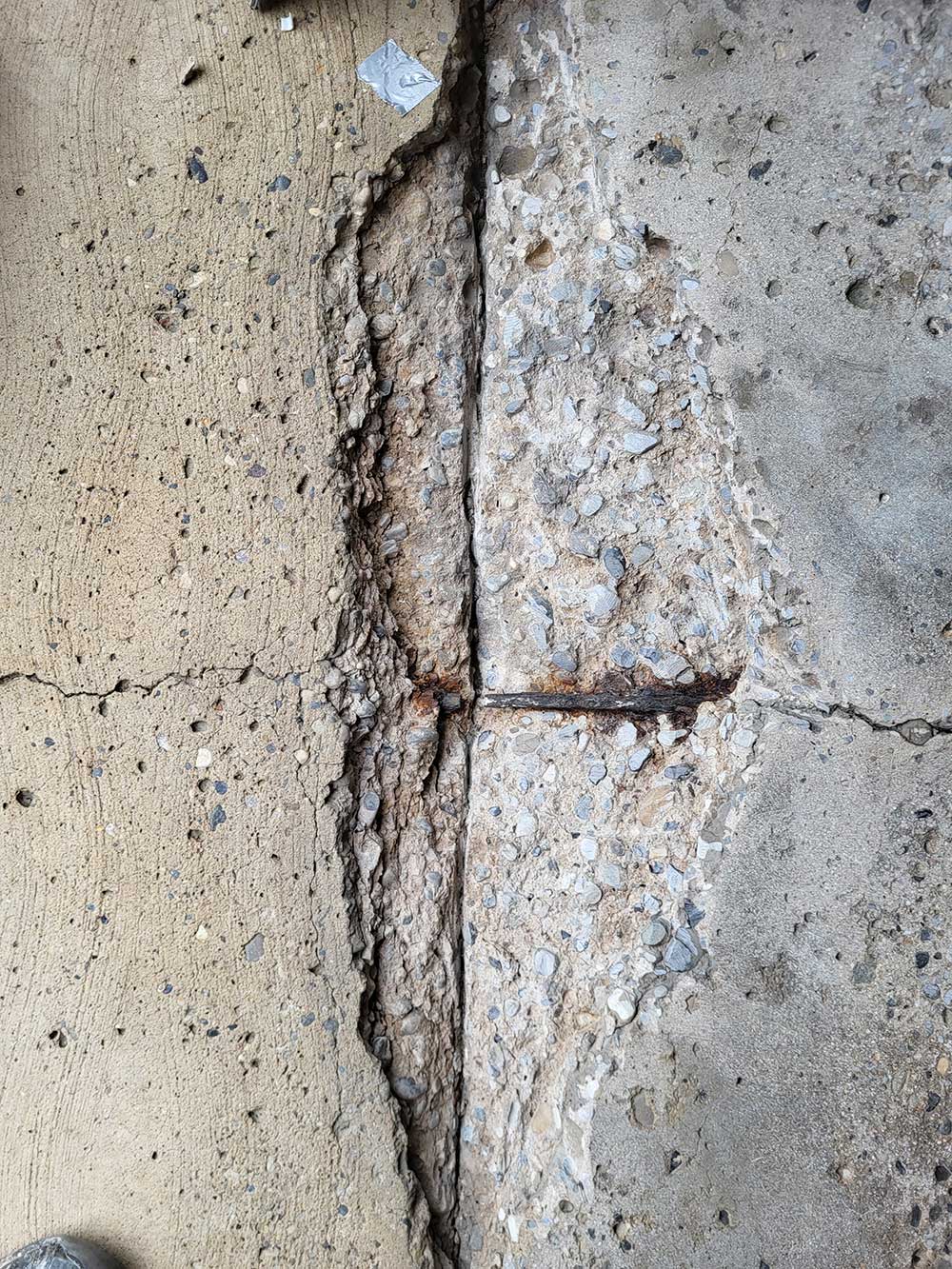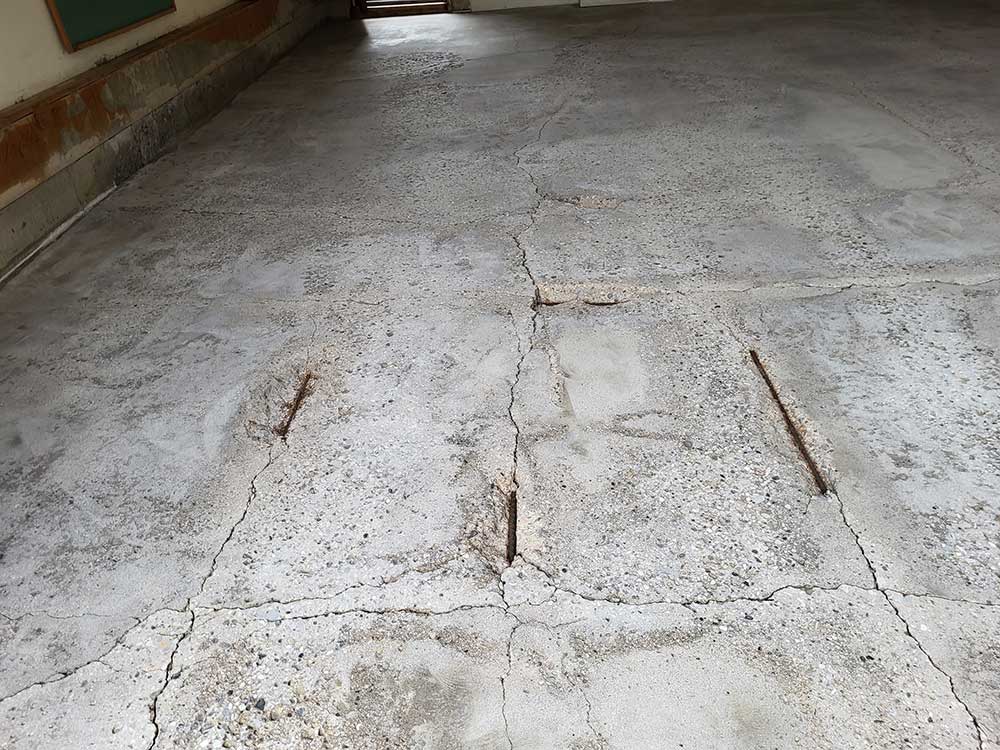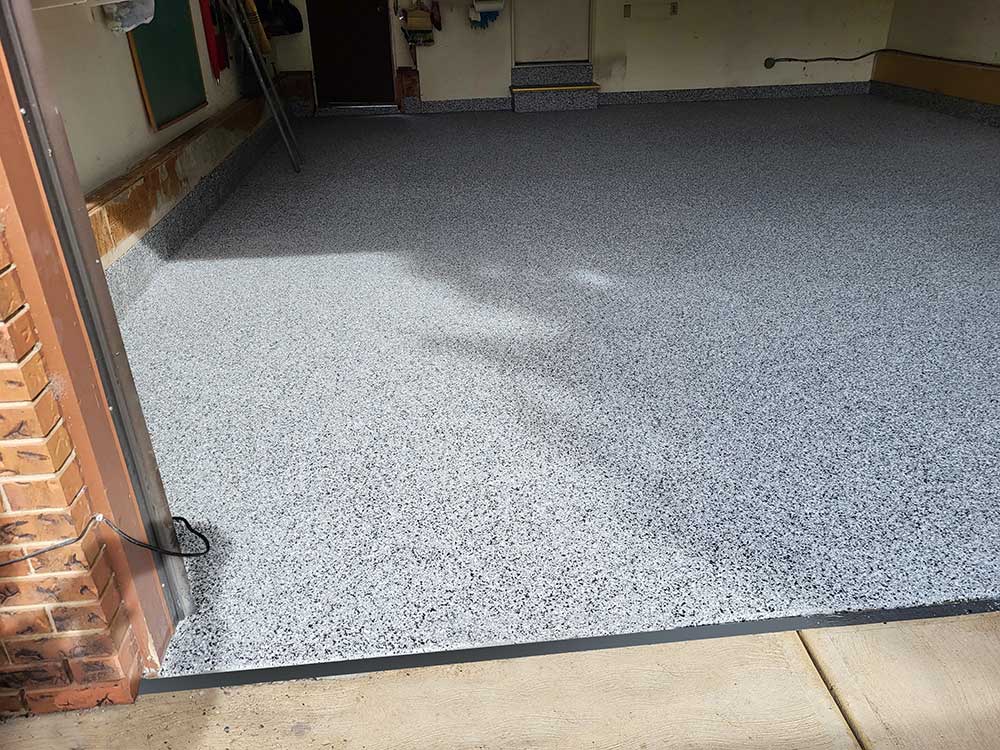Common Concrete Problems That Can Affect Your Garage Floor
Concrete in its non-solid state is just water and cement. As it hardens and the water evaporates, it shrinks. Too much water means too much shrinkage and too much shrinkage leads to cracks in the finished project.
Concrete Moves!
Concrete tends to change subtly based on weather conditions. Hot weather will see your concrete slab expand, pushing against anything in its way. If it meets an object that doesn’t flex or give during that expansion, it will likely crack. Unfortunately, aside from planning for this expansion, there’s not a whole lot you can do about this.
Ground movement is another cause for cracking in garage floors and patios. Excessive freeze and thaw cycles can cause the ground to push upwards on the concrete, causing it to crack and break, this is known as Heaving. As with expansion and contraction, heaving is likely to occur over time.



Front apron damage is usually a result of rebar that ties the driveway and garage floor together without flexibility. Over time, our freeze and thaw cycles cause the concrete to shift creating cracks along the front edge. Good news we can fix these issues and restore them ask us how.
If your concrete is damaged and has open cracks, it’s exposed to water, salt, air, and moisture which eventually leads to concrete deterioration. If water pooling is excessive, it will create higher levels of humidity causing not only concrete issues, but it can also affect any drywall and door frames.

With Garage Granite’s proven product line and installation professionals, we are confident we can bring your problem floor back to Life! Let us show you how!

